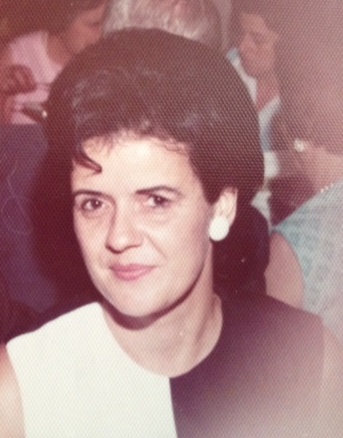My friend, Mary, sent me a link to Laura Skandera Trombley’s wonderful article about the identity questions that adoptees wrestle with every day.
“I saw this story and immediately thought of you,” Mary wrote.
Skandera Trombley, who is a college president, talks about the questions adoptees have about their first families, the circumstances that led to adoption, biological ancestors, ethnic roots and medical histories. Like me, Skandera Trombley was adopted in the 1960s.
“I was born during a cruel time for the adopted; the 1960s was an era when such transactions were considered “closed,” and basic information was routinely and legally withheld,” Skandera Trombley wrote. “And yet I cannot escape or pretend to ignore my past. It walks with me every day.”
Unlike me, Skandera Trombley knew early on that she was adopted. She also learned that being adopted was not something you dropped in casual conversations with people outside your immediate family. When people asked her where she got her pretty red hair, rather than saying “I’m adopted,” Skandera Trombley’s adoptive mom advised her to tell people that she had a red-haired aunt who lived in New York.
I can identify with Skandera Trombley’s fierce attachment to her name. Miller is my adopted father’s surname, the only name I’ve ever had and the name I intend to keep for the rest of my life. When I got married, there was never any question that I would continue being a Miller. I liked having a name that’s short, simple, easy to pronounce and spell. More important, my maiden name is part of my original identity, the name readers see when they read my articles. My name is my name. Like Skandera Trombley, I don’t want anyone messing with it.
I thought I knew who I was and where I came from until that day 11 years ago when I found out I was adopted. My identity suddenly felt like it was up for grabs. Some man other than Bob Miller actually fathered me? Claire Miller was not my real mother? Was I not really a Miller? Was I something other than Polish and German? Why didn’t my parents tell me I was adopted? How could I have been so stupid to have not figured this out years ago?
I’m still wrestling with some of those questions. Having searched for my blood relatives through DNA testing and old-fashioned record checking, I know who my biological mother was, why she gave me up for adoption and my ethnic heritage. I have filled in many names on my family tree but it’s still only half a tree. My mother and her relatives are represented but my father and his relatives are nowhere to be found.

These days I wonder what my last name would be if my biological father had raised me. Will I ever find out that name and other basic facts about the man who (perhaps unknowingly) brought me into the world?
“I learned a hard lesson: For the adopted, coming to terms with one’s identity is a lifelong struggle,” Skandera Trombley wrote.
That’s one way to look at it. It’s true that learning about my original family and their challenges has brought tears to my eyes. It’s been very sobering. Still, I don’t feel like I’m struggling, exactly. I am learning the truth about my origins and I’m taking the good with the bad. Truth is good. I can handle occasional jabs of painful truth. Just don’t lie to me, please.
Last week, I discovered two distant cousins who only recently found out they are related to one another as uncle and niece. Pat and Sheryl live in Oklahoma, a state I’ve never visited, one that’s known for its huge population of mixed-blood and full-blooded Native Americans. Pat has an Irish or Scottish surname but he is as he put it a “card-carrying Native American.” He and Sheryl have Native American roll numbers.
How intriguing! Now that I’ve found blood relatives with Indian ancestry, I’m wondering again about my heritage. My DNA test didn’t turn up any Indian blood. In fact, my ethnic background is more than 98 percent Western European, according to Family Tree DNA. I’m definitely Irish, possibly English and Scottish. But I’ve heard stories about my birth mother, Lillian, teaching her other children an Indian rain dance, according to my sister, Sissy. Rumor has it Lillian was part Cherokee. Could I have trace amounts of Native American blood from way back when?
These are the kinds of questions that I turn over in my head. I guess you could say my identity is a work in progress, a jigsaw puzzle with many missing pieces.

